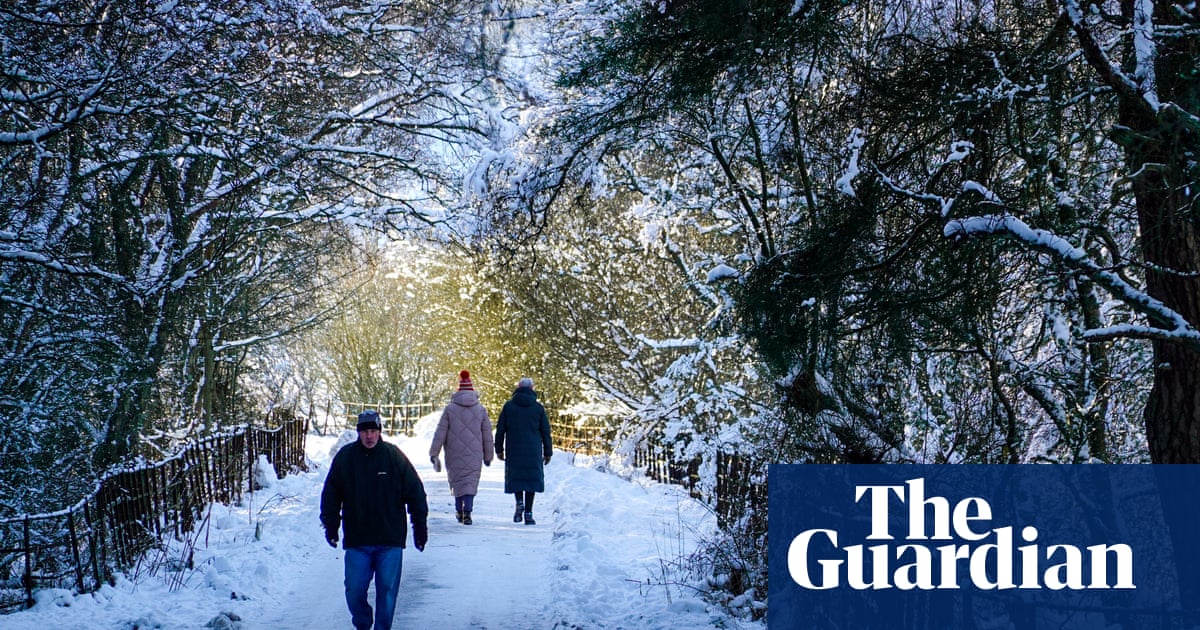As meteorological autumn drew to a close at the end of last week, parts of the north-east of the US saw substantial snowfall thanks to a phenomenon known as “lake-effect snow”.
This occurs when cold air passes over relatively warm lake waters, causing the layer of air near to the surface to absorb heat and moisture. Warmer than the air above it, this layer of air then starts to rise, cooling and condensing into clouds that deposit snow on the windward side of the lakes in extremely localised bands.
Conditions in that region were ideal for producing lake-effect snow accumulations over the weekend. An area of low pressure over eastern Canada allowed cold Arctic air to sweep across the Great Lakes, leading to significant snowfall in five states downwind of lakes Ontario, Michigan and Erie.
Western New York state was hit particularly hard, with nearly 4ft (1.22m) of snow accumulating in just four days. In response to the heavy snowfall, New York and Pennsylvania declared states of emergency, enabling the deployment of National Guard troops to rescue drivers trapped in snow in post-Thanksgiving travel.

The Buffalo Bills American football team sought volunteers to clear snow in their home, Highmark Stadium in New York state, before a game on Sunday night.
Further snow is expected during the start of this week, with up to 6ft forecast to settle in upstate New York by Tuesday. Colder conditions are expected to spread farther south through the eastern US, with temperatures 10-15F below average forecast for central and eastern Gulf coast states as high pressure builds over the mid-Mississippi valley.
Snow has also caused disruption across South Korea, with the capital, Seoul, receiving its third heaviest snowfall on record. Last Wednesday more than 40cm (16in) fell, the heaviest November snowfall since records began a century ago.

There were 142 flights and 76 ferry routes cancelled or suspended as freezing temperatures continued into Thursday, and more than 1,000 schools were shut in Gyeonggi, South Korea’s most populous province, which borders Seoul.
Snowfall resulted in the deaths of at least five people, four of them due to structures collapsing and the fifth in a traffic accident. Temperatures have since risen, melting much of the snow by Sunday.

.png) 1 month ago
7
1 month ago
7













































